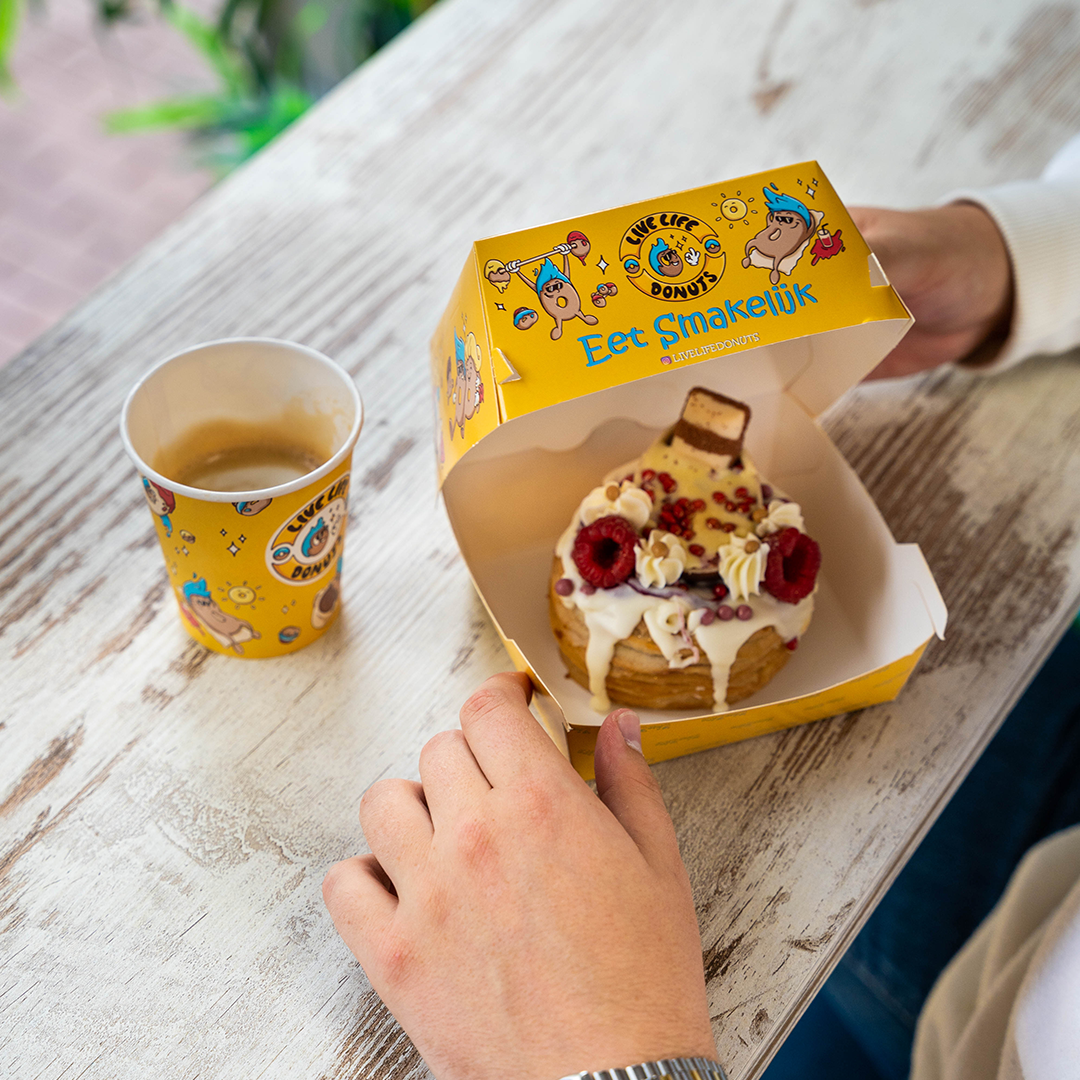Full of passion, communicatively strong and also incredibly flexible. In recent years, hospitality entrepreneurs have shown more than ever how agile they are in unexpected situations. A lot has changed in the world and emerging trends have developed at a rapid pace. As true go-getters, hospitality entrepreneurs have never given up the fight and an extremely dynamic industry has emerged. In the previous article A rock-solid hospitality brand, why? we called this one the Hospitality 2.0. But what exactly does this mean? What trends underlie it and how can we respond to them?
Not entirely unexpectedly, Hospitality 2.0 represents a new version of the hospitality industry. Where most businesses were physically out for a long time, the entire hospitality industry has been reborn in a new look. This is reflected not only in their literal jacket - a new visual look - but also in a number of emerging trends. These didn't pop up completely unexpectedly; many hospitality trends were making an appearance before the pandemic. Let's take a closer look at the three key features of Hospitality 2.0 [1]:
1. All senses take center stage
Whereas a traditional hospitality visit was evaluated primarily on the basis of taste experience, it has slowly begun to involve multiple senses. The importance of taste perception has transformed into that of total experience.
Not only tasting is leading, but also hearing, seeing, smelling and feeling are given an essential place in the guest's experience.
How so? On the one hand, because progressive equipment makes making a good piece of meat increasingly "easier," and on the other, because a total experience gives us multiple ways to stand out. The over-saturation of the catering industry means that this shift has become inevitable and challenges every catering establishment to stand out on multiple levels. Not only is a good chef important, but also a unique appearance. In addition to the five well-known senses, many hospitality businesses are capitalizing on the need for interaction. Guests are personally approached and invited for a conversation.
2. The importance of online presence
Remember the old days, when the hospitality industry was the place to go offline. Where there was always someone at the table who suggested "putting away the phones to pay attention to each other." Many people still favor this traditional approach to reunions, however, paradoxically, the hospitality industry is getting an increasing share of the online world. For example, social media is now an essential means of reaching potential guests.
On Instagram, there is plenty of communication with guests and, once again, interaction is key.
Similarly, the emerging platform TikTok allows hospitality businesses to be visible online and reach Generation Z, the youth generation born between 1996 and 2015, in a "friendship role" [2].
In addition, the pandemic has meant that in addition to takeaway and dark kitchens, even virtual restaurants have found their place within the Web. Restaurants with no physical place, no physical place where you can go as a guest, but where the delivery man serves as a waiter. This trend gives a huge swing to the essence of online appearance. After all, how to stand out in an overstimulating environment called the Internet? An eye-catching brand identity, recognizable colors and an easy name become critical to success.

Life Live Donuts | Nijmegen
3. Hospitality industry gets corporate mentality
Hand in hand with the importance of online presence, a true business mentality is emerging within the hospitality industry. Whereas the cozy branch of this industry mainly lived day to day, since the pandemic it has become apparent that hospitality businesses also need a long-term vision. Strategy is being developed and thinking ahead in a professional manner. This makes it more important than ever to follow trends and stay abreast of guest needs.
Where this blurred line becomes readily apparent is in the marketing of hospitality businesses. Where previously the bartender would fill their Insta feed with photos of well-honed cocktails, now there is often a marketing manager on top, to maintain consistency and consistency. They also spar over a proper marketing strategy, with matching looks that have been thought through more than three times.
All with the goal: a growing and loyal guest base.
Action in the cab!
That guests' needs are different in Hospitality 2.0 is obvious. People expect a complete experience, preferably off- and online. It is also important to focus on sustainable success through strategy. So it's time to look ahead. How do you ensure that your guest leaves your business happy? And even more important: what can you do to make this guest your guest in these times?
Strong branding is crucial. Stand out among other businesses and actually be seen as a brand. Branding starts with your name, logo and brand identity, but can then be incorporated into your entire appearance, inside and outside your establishment. Focusing on a strong brand plays on the three characteristics of the Hospitality 2.0 mentioned above: a striking appearance stimulates senses, provides distinctiveness in the online world and provides a basis for a successful marketing strategy. Here's to the future!
Source reference:
[1] Hospitality trends 2022: what is, will be and will remain important, Lightspeed. Accessed October 1, 2022 https://www.lightspeedhq.nl/blog/horecatrends/
[2] Millennials versus Gen Z: the best marketing approach for these troublesome young people, Salesforce. Accessed October 1, 2022. https://www.salesforce.com/nl/blog/2019/09/Millennials-versus-GenZ-de-verschillen-en-beste-marketingbenadering.html































